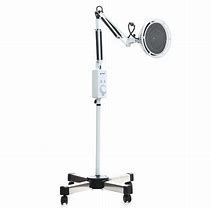Last Updated on 5 months by Francis
Infrared saunas are gaining popularity as a way to relax and rejuvenate, but it’s important to be aware of the potential risks. While there are claims of health benefits, such as easing sore muscles and improving sleep, there are also potential negative effects. These can include heat discomfort, low blood pressure, light-headedness, leg pain, airway irritation, and claustrophobia. Medical reports have also noted cases of burns, fainting, falls, and even severe health complications and deaths, although these are rare. Additionally, ongoing sauna exposure may temporarily affect sperm health. People with certain conditions, such as unstable coronary artery disease and orthostatic hypotension, should avoid infrared sauna use, as should pregnant women. It’s always best to consult with a doctor before using an infrared sauna, especially if you have any health conditions or take medications.
Contents
Key Takeaways:
- Infrared saunas have potential risks, including heat discomfort, low blood pressure, and light-headedness.
- There have been cases of burns, fainting, falls, and severe health complications, although these are rare.
- Sauna exposure may temporarily affect sperm health.
- People with certain conditions, such as unstable coronary artery disease and orthostatic hypotension, should avoid infrared sauna use.
- Consult with a doctor before using an infrared sauna, especially if you have any health conditions or take medications.
What is an Infrared Sauna?
An infrared sauna is a type of sauna that differs from traditional saunas in its heating mechanism. Instead of heating the air around you, infrared saunas use electromagnetic radiation from infrared lamps to directly heat your body. This results in a more gentle and penetrating heat compared to the high temperatures of traditional saunas.
The temperature in an infrared sauna typically ranges from 45°C to 60°C (113°F to 140°F), which is lower than the temperatures in traditional saunas. The infrared heat is believed to penetrate deeper into the body, reaching and healing deep tissues and promoting detoxification through sweating.
While there is evidence supporting the potential health benefits of infrared saunas, such as relaxation and pain tolerance, further research is needed to confirm these results. However, it is important to note that no harmful effects have been reported with the use of infrared saunas.
| BENEFITS | RISKS |
|---|---|
|
|
While there are potential benefits of using an infrared sauna, it’s important to be aware of the potential negative side effects. These can include heat discomfort or intolerance, low blood pressure, light-headedness, leg pain, airway irritation, and claustrophobia. However, it’s worth noting that no harmful effects have been reported with infrared saunas. To ensure your safety, it’s always recommended to consult with a healthcare professional before using an infrared sauna, especially if you have any pre-existing health conditions.
Negative Side Effects of Using an Infrared Sauna
While there are potential benefits of using an infrared sauna, it’s important to be aware of the potential negative side effects. According to a systematic review, these can include heat discomfort or intolerance, low blood pressure, light-headedness, leg pain, airway irritation, and claustrophobia. Medical reports have also noted cases of burns, fainting, falls, and even severe health complications and deaths, although these are rare. Additionally, a small study found that ongoing sauna exposure may temporarily affect sperm health, with lower sperm count and motility. These effects were temporary and reversible.
It is crucial to prioritize your safety and well-being when using an infrared sauna. While the majority of sauna users do not experience serious side effects, it’s important to be mindful of your body’s reactions and take necessary precautions. Some individuals may be more susceptible to the negative effects of heat, such as those with low blood pressure or certain medical conditions. It is always recommended to consult with a healthcare professional before using an infrared sauna, especially if you have any underlying health concerns or are taking medications.
| Potential Side Effects of Infrared Saunas | Precautions to Consider |
|---|---|
| Heat discomfort or intolerance | Monitor your body’s response and adjust sauna time and temperature accordingly |
| Low blood pressure | Avoid sudden changes in position, such as standing up quickly after a sauna session |
| Light-headedness | Take breaks, hydrate regularly, and exit the sauna if feeling lightheaded |
| Leg pain | Stretch and move your legs periodically during sauna sessions |
| Airway irritation | Ensure proper ventilation in the sauna and discontinue use if experiencing breathing difficulties |
| Claustrophobia | Choose saunas with larger interiors or windows to alleviate feelings of claustrophobia |
It’s important to remember that the negative side effects of using an infrared sauna are generally rare and can be managed through proper usage and precautions. By listening to your body, consulting with a healthcare professional, and following safety guidelines, you can safely enjoy the potential benefits of infrared sauna therapy.
Risks Associated with Infrared Sauna Use
Infrared saunas are generally considered safe for most people, but there are certain risks and precautions to be aware of. It’s important to understand that although the potential risks exist, they are relatively rare and can be minimized by taking appropriate measures.
Conditions that Increase Risk
There are certain health conditions that can increase the risk of adverse effects when using an infrared sauna. These include unstable coronary artery disease, ischemic heart failure, orthostatic hypotension, heart valve disease, and pregnancy. If you have any of these conditions, it’s essential to consult with your healthcare professional before using an infrared sauna.
Medications and Medical Devices
If you are taking any medications or have implanted medical devices, it’s important to consider their potential interaction with infrared sauna use. Some medications and devices may be affected by the heat or electromagnetic radiation from the sauna. It’s crucial to consult with your healthcare professional to ensure the safety of sauna use in relation to your specific situation.
Cardiovascular Health and Sauna Use
Individuals with cardiovascular diseases or underlying heart arrhythmias should exercise caution when using an infrared sauna. The heat from the sauna can increase heart rate and potentially trigger arrhythmias. If you have any concerns about your cardiovascular health, it’s best to consult with your doctor before using an infrared sauna.
It’s also important to note that individuals with weakened immune systems or unhealed wounds should take caution when using an infrared sauna. The heat and potential exposure to bacteria can pose risks for these individuals. If you have any concerns or underlying health conditions, it’s always best to consult with your healthcare professional to determine if infrared sauna use is safe for you.
| Risks Associated with Infrared Sauna Use | Precautions |
|---|---|
| Unstable coronary artery disease | Consult with a healthcare professional before use |
| Ischemic heart failure | Consult with a healthcare professional before use |
| Orthostatic hypotension | Consult with a healthcare professional before use |
| Heart valve disease | Consult with a healthcare professional before use |
| Pregnancy | Avoid infrared sauna use |
| Medications | Consult with a healthcare professional for potential interactions |
| Implanted medical devices | Consult with a healthcare professional for potential interactions |
| Cardiovascular diseases | Consult with a healthcare professional before use |
| Weakened immune system | Take caution and consult with a healthcare professional |
| Unhealed wounds | Take caution and consult with a healthcare professional |
Tips for Using an Infrared Sauna
When using an infrared sauna, it’s important to follow certain guidelines for safe use. By taking the necessary precautions, you can minimize the potential risks and enjoy the benefits of infrared sauna therapy.
Stay hydrated:
One of the most important safety precautions is to stay properly hydrated. Drinking plenty of water before, during, and after your sauna session helps regulate body temperature and prevent dehydration. It’s recommended to drink at least 8 ounces of water before entering the sauna and to have a water bottle nearby during your session.
Limit your time:
It’s essential to limit your time in the sauna, especially if you’re an older adult or have any underlying health conditions. Start with shorter sessions of around 10-15 minutes and gradually increase the duration as your body becomes more accustomed to the heat. Be mindful of any signs of discomfort or overheating and exit the sauna immediately if you experience dizziness, lightheadedness, or any other adverse symptoms.
Avoid alcohol:
Avoid consuming alcohol before using an infrared sauna. Alcohol can increase the risk of dehydration and may interfere with your body’s ability to regulate heat. It’s best to enjoy your sauna session with a clear mind and a hydrated body.
Consult with a healthcare professional:
Prior to using an infrared sauna, it’s advisable to consult with a healthcare professional, especially if you have any pre-existing health conditions or concerns. They can provide personalized advice and guidance based on your specific circumstances to ensure that infrared sauna use is safe for you.
By following these safety precautions, you can enjoy the relaxation and potential health benefits of using an infrared sauna while minimizing the risks.
Are Infrared Saunas Safe? Potential Side Effects and Precautions

Infrared saunas, also known as far-infrared saunas, are generally considered safe for use. They operate at lower temperatures than traditional saunas, making them more tolerable for those who may find high heat uncomfortable. While there are potential side effects and risks associated with infrared sauna use, they are typically rare and can be mitigated with proper precautions and medical guidance.
Some potential side effects of using an infrared sauna include heat discomfort, low blood pressure, light-headedness, leg pain, airway irritation, and claustrophobia. It’s important to listen to your body and stop your session if you experience any of these symptoms. Additionally, a small study has suggested that ongoing sauna exposure may temporarily affect sperm health, but these effects are reversible and not considered harmful in the long term.
To ensure a safe infrared sauna experience, it’s recommended to follow these precautions:
- Seek medical clearance before using an infrared sauna, especially if you have any pre-existing health conditions.
- Avoid drinking alcohol before using the sauna, as it can contribute to dehydration.
- Stay hydrated by drinking plenty of water before, during, and after your sauna session.
- Limit your time in the sauna, especially if you’re an older adult or have any health conditions.
- Avoid using the sauna if you have irritated skin or open wounds.
- Pay attention to any symptoms such as dizziness or light-headedness and stop your session immediately if you experience them. If symptoms persist, seek medical help.
“I’ve been using infrared saunas for years and have never experienced any negative side effects. It’s a great way for me to relax and detoxify my body.” – Jessica, regular infrared sauna user
In conclusion, while there are potential side effects and risks associated with infrared saunas, they are generally considered safe when used correctly and with proper precautions. By following the recommended guidelines and consulting with a healthcare professional, you can safely enjoy the potential benefits of infrared saunas for relaxation and wellness.
Infrared Sauna Dangers: Strain and Dehydration

Two common risks associated with infrared saunas are strain from the heat and dehydration. Spending excessive time in the sauna can lead to overheating and heat stroke, which can be prevented by being conscious of your body and its limitations. It’s important to stay hydrated and drink plenty of water before, during, and after your sauna session to prevent dehydration. Dizziness, dry mouth, headaches, and fatigue can be signs of dehydration, so it’s important to listen to your body and take breaks as needed.
“Staying hydrated is crucial when using an infrared sauna. Dehydration can occur quickly due to the high temperatures and sweating. It’s important to drink water regularly to replenish fluids and prevent any potential health hazards.”
EMF radiation from infrared saunas and the potential impact on silicone implants are also factors to consider, although the risks are generally low. While EMF radiation is minimal in infrared saunas compared to other electronic devices, those with silicone implants may want to exercise caution and consult with their doctor. It’s always best to prioritize your safety and make informed decisions based on your individual circumstances.
Risks of Strain and Dehydration in Infrared Saunas
When using an infrared sauna, it’s essential to be mindful of the potential dangers of strain and dehydration. By following proper usage guidelines, staying hydrated, and recognizing the signs of overheating or dehydration, you can minimize these risks and enjoy the benefits of infrared sauna use.
Health Conditions and Sauna Use

If you have certain health conditions, it’s important to exercise caution or consult with a medical practitioner before using an infrared sauna. Conditions such as brain tumors, heart attacks, lupus erythematosus, aortic stenosis, multiple sclerosis, and others can be worsened by the harsh conditions of saunas. It’s important to prioritize your safety and consider any pre-existing conditions before using an infrared sauna. In some cases, sauna use may not be recommended or may require clearance from a healthcare professional. It’s always best to err on the side of caution and prioritize your health.
Potential Health Risks
When it comes to infrared sauna use, there are potential health risks that need to be considered. People with certain medical conditions may experience adverse effects due to the heat and humidity of the sauna environment. Individuals with brain tumors should avoid sauna use, as the increase in body temperature can negatively impact their condition. Similarly, those who have had a recent heart attack or have a history of heart problems should be cautious, as the heat can strain the cardiovascular system. Additionally, individuals with autoimmune conditions such as lupus erythematosus may experience symptom flare-ups as a result of sauna use.
Considering Multiple Sclerosis
Multiple sclerosis is a chronic neurological condition that affects the central nervous system. People with this condition may be more sensitive to heat and experience varying symptoms when exposed to high temperatures. It’s recommended that individuals with multiple sclerosis consult with their healthcare provider before using an infrared sauna. In some cases, sauna use may be deemed safe as long as precautions are taken, such as limiting the duration and maintaining proper hydration. However, it’s important to work closely with a healthcare professional to determine the best course of action.
Infrared Sauna Benefits
Infrared saunas offer a range of potential health benefits that can contribute to your overall well-being. By utilizing infrared heat, these saunas can promote detoxification, improve circulation, and enhance relaxation. Additionally, they may help alleviate pain and provide relief for conditions such as high blood pressure, heart failure, dementia, diabetes, and arthritis.
One of the key advantages of infrared saunas is their ability to penetrate deeper into the body, targeting deep tissue for potential healing. This deeper penetration can result in increased relaxation and pain tolerance, making infrared saunas a valuable option for those seeking natural pain relief.
While scientific research supports some of the reported benefits of infrared saunas, it’s important to note that larger and more exact studies are needed to confirm these findings. However, it’s worth considering the potential benefits of infrared saunas, especially when used in conjunction with a healthy lifestyle and under the guidance of a healthcare professional.
Benefits of Infrared Saunas:
- Promote detoxification and cleansing
- Improve circulation and cardiovascular health
- Enhance relaxation and reduce stress
- Aid in pain relief and muscle relaxation
- Potentially alleviate symptoms of certain health conditions
By incorporating regular infrared sauna sessions into your wellness routine, you may experience an enhanced sense of well-being and find relief from various physical and mental ailments. However, it’s important to consult with a healthcare professional before starting any new health regimen, especially if you have underlying medical conditions or concerns.
Credits:
Conclusion
Infrared saunas can provide a relaxing and rejuvenating experience, but it’s essential to be aware of the potential risks and take necessary precautions. While there are reported benefits of using an infrared sauna, such as relaxation and pain relief, it’s important to understand the potential side effects and health risks. These can include heat discomfort, low blood pressure, light-headedness, leg pain, airway irritation, and claustrophobia.
Consulting with a healthcare professional before using an infrared sauna is crucial, especially if you have any health conditions or concerns. By seeking medical advice and following proper safety guidelines, you can minimize the potential risks and enjoy the potential benefits of infrared saunas.
Remember to stay hydrated before, during, and after your sauna session, and take breaks if needed. Pay attention to your body’s signals and stop your session immediately if you experience symptoms such as dizziness or light-headedness. By prioritizing your health and well-being, you can safely incorporate infrared saunas into your wellness routine.
FAQ
Are there any harmful side effects of using an infrared sauna?
While there are potential benefits, such as relaxation and pain relief, there are also potential negative side effects, including heat discomfort, low blood pressure, light-headedness, leg pain, airway irritation, and claustrophobia.
What are the risks associated with infrared sauna use?
Risks can include burns, fainting, falls, and even severe health complications and deaths, although these are rare. Ongoing sauna exposure may also temporarily affect sperm health. People with certain conditions, such as unstable coronary artery disease and orthostatic hypotension, should avoid infrared sauna use, as should pregnant women.
Is it safe to use an infrared sauna?
Sauna use is generally considered safe for most people, but those with certain health conditions, including cardiovascular diseases or underlying heart arrhythmias, weakened immune systems, unhealed wounds, or certain medications, should exercise caution or consult with a doctor before using an infrared sauna.
How can I use an infrared sauna safely?
It is important to seek medical clearance, stay hydrated, limit your time in the sauna, avoid using it if you have irritated skin or open wounds, and pay attention to any symptoms of dizziness or light-headedness. If symptoms persist, seek medical help.
What is an infrared sauna?
An infrared sauna uses light to make heat and directly heats the body without warming the air around you. It operates at lower temperatures than traditional saunas and may have potential health benefits.
What are the potential dangers of using an infrared sauna?
Two common risks associated with infrared saunas are strain from the heat and dehydration. It’s essential to be conscious of your body’s limitations, stay hydrated, and take breaks as needed. EMF radiation and potential impacts on silicone implants are also factors to consider, although the risks are generally low.
What health conditions should I be aware of before using an infrared sauna?
Conditions such as brain tumors, heart attacks, lupus erythematosus, aortic stenosis, multiple sclerosis, and others can be worsened by sauna use. It’s important to prioritize your safety and consider any pre-existing conditions before using an infrared sauna. Consult with a healthcare professional if needed.
What are the potential benefits of using an infrared sauna?
Infrared saunas are believed to promote detoxification, improve circulation, enhance relaxation, aid in pain relief, and have potential benefits for conditions such as high blood pressure, heart failure, dementia, diabetes, arthritis, and more.








